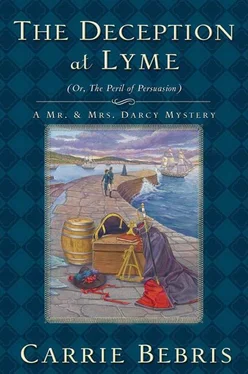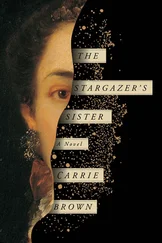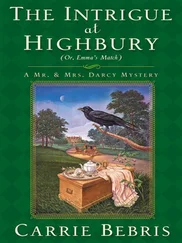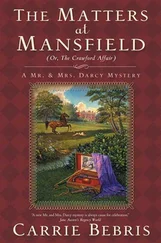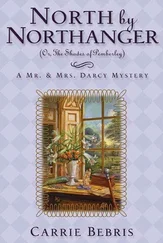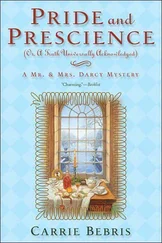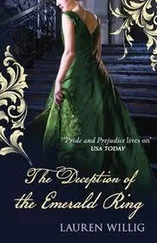“He did indeed, though I do not know the nature of the business he conducted on that trip. His papers are a hodgepodge of important documents and trivial memorandums—no order to them whatsoever—and I have found nothing about the journey save for a note from Elliot confirming westward passage booked aboard a merchant vessel. From the rest of the papers, I have determined that he inherited a goodly sized sugar plantation from his father, and that when it came into the son’s possession, it was a lucrative holding. Its primary business was producing rum and sugar for export to England. The income was not extraordinary, as the British government imposes such high taxes on those imports and requires the sugar to be refined in England, so that our own refiners can monopolize the industry. But the plantation provided enough to maintain a gentleman’s style of living. By the time of Mr. Smith’s journey, however, the estate had fallen into financial straits. Much of the problem derived from his extravagant spending, but his income had also decreased. I expect he traveled to Jamaica to meet with the plantation’s overseer, to personally examine his accounts and methods of management.”
“Have you asked Mr. Elliot about the purpose of the trip?”
“You witnessed the amount of cooperation I have received from Mr. Elliot.”
“Yes, he advised you repeatedly to drop the matter altogether.” Darcy paused. “In fact, despite his ostensible reason for approaching us—to enquire of me after Alfred’s well-being—he seemed far more interested in talking to you. Or, more to the point, in making a great show of not talking to you about Mrs. Smith’s estate.”
“Perhaps because he made such a failure of it—if not by exerting influence over Smith during his life, then as executor after his death,” Wentworth said. “He has told Mrs. Smith that the property is so deep in arrears on its taxes that it has been seized, and that recovery is impossible. However, when it comes to increasing the size of his own fortune, Mr. Elliot is a talented schemer. Had he applied his shrewdness to the Smith estate, I have no doubt it would have become a profitable concern once more.”
“Particularly,” Darcy said, “since having traveled with Smith to the plantation, he likely saw the entire operation and gained intimate knowledge of its potential.”
Darcy was having trouble comprehending Mr. Elliot’s actions and motives. One would think that after Mr. Clay’s betrayal with Mr. Elliot’s wife, Mr. Elliot would have done better by the friend who had remained loyal to him. Apparently, however, Mr. Elliot was loyal only to himself, though his friends might drop dead around him: both of the Clays, his wife—
Mr. Smith.
Mr. Elliot seemed to have lost an extraordinary number of friends in the past three years.
“I understand Mr. Smith died almost immediately upon returning home,” Darcy said. “Do you know how?”
“Some sort of illness. It upsets Mrs. Smith to talk about it, so I have never enquired into the particulars, as they have no bearing on the issue of the estate. All that matters is that Smith is dead; the law cares not how he came to be thus, so long as it occurred by natural means.”
Or means that appeared natural. A push could look like an accidental fall; poison could disguise itself as illness.
A killer could masquerade as a friend.
The listener’s proverbial fate was not absolutely hers: she had heard no evil of herself.
—Persuasion
Upon leaving the Wentworths’ home, Elizabeth and Darcy found their steps leading them not to their own cottage, but back to the Cobb. A boundary between the quiet village and the untamed sea, the ancient breakwater was the only place where it felt natural to entertain conjecture on subjects that also lay beyond the limits of civilized behavior. As they walked along the lower wall, passing the gin shop and following the curve toward the quay, Elizabeth recounted the ladies’ sitting room conversation.
“You shared with Mrs. Wentworth your suspicions regarding Mrs. Clay’s death?” Darcy sounded somewhat surprised.
“I had not planned on doing so overtly,” Elizabeth replied, “but when the opportunity arose in the course of conversation, I thought I should—not only to encourage watchfulness on Alfred’s behalf, but also to increase the likelihood of her revealing any pertinent family business to someone outside the family, should she think of something useful to our probe. I was a bit apprehensive about how Mrs. Wentworth would respond, but she appreciated my concern for Alfred, and as you saw, she was as cordial as ever when we parted.”
Darcy laughed.
“What is so amusing?” she asked.
“While you were engaged in murderous conjecture with the ladies, I was telling her husband my suspicions regarding Gerard’s death.”
Elizabeth released a laugh of her own. “Can you imagine the conclusions they will draw when they compare conversations? They will think us the most distrustful couple they have ever met.”
“We probably are.” Darcy took her arm as she trod over an especially uneven series of stones. It was a calm day; not needing to hug the wall for shelter from the wind, they were walking closer to the harbor’s edge than on previous promenades along the lower Cobb.
“We have good reason. For a resort where visitors come to improve their health, Lyme seems to attract a great many people with mysterious deaths in their past—and present. We can but hope that nobody notices we are not ourselves exempt.”
“Yes, but we solve the murders; we do not commit them.”
“Even so,” Elizabeth said, “one of these days I would like to journey from Pemberley without encountering a single corpse. The count is climbing rather high on this holiday, if we include all the ones we have learned about secondhand. I added another today—Mrs. Elliot.”
“Mr. Elliot’s wife died mysteriously?”
“She took a fatal tumble down a set of steps. Apparently, women of his acquaintance suffer an alarming degree of clumsiness on staircases.”
“While the men suffer by other means. Captain Wentworth told me today that Mr. Smith died of illness.”
“How mundane of Mr. Smith. There is little inspiration for scandal in that. At least when Mr. Clay’s heart gave out, he was engaged in something interesting.” She paused. “Actually, now that I think on it, Mrs. Smith said only that Mr. Clay died in the act—she never specified how. Mr. Elliot could have walked in on Mr. Clay with Mrs. Elliot and shot him, for all we know. However, even without that additional drama, the members of Mr. Elliot’s erstwhile coterie all died rather spectacularly, except for Mr. Smith.”
“And Mrs. Smith.”
She drew a sharp breath, a disturbing new thought overtaking her. She had not previously considered the fact that of the three couples, Mrs. Smith was the only person still alive besides Mr. Elliot. “Four people dead within three years—everybody Mr. Elliot was close to, save one. Do you think Mrs. Smith might be in danger? She knows so many of his secrets, and her repeated applications to Mr. Elliot regarding Mr. Smith’s estate have made her an annoyance he would prefer just disappear. Her compromised health renders her all the more vulnerable to treachery.”
“It is probably a good thing that she is living with the Wentworths at present, and that she has turned matters over to Captain Wentworth, who I daresay is equal to any challenge Mr. Elliot could present,” Darcy replied. “That being said, she perhaps ought to exercise caution around staircases—or anywhere else Mr. Elliot is present—though I do not foresee her climbing up and down stairs unassisted anytime soon.”
Читать дальше
